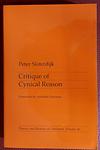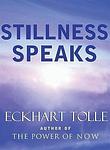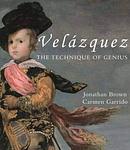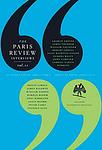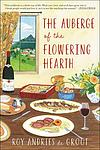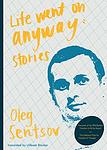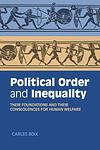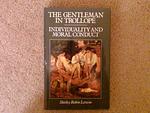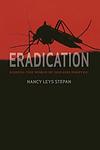The Greatest German, Unknown "Nonfiction" Books Since 1970
Click to learn how this list is calculated.
This list represents a comprehensive and trusted collection of the greatest books. Developed through a specialized algorithm, it brings together 300 'best of' book lists to form a definitive guide to the world's most acclaimed books. For those interested in how these books are chosen, additional details can be found on the rankings page.
Genres
Countries
Date Range
Reading Statistics
Click the button below to see how many of these books you've read!
Download
If you're interested in downloading this list as a CSV file for use in a spreadsheet application, you can easily do so by clicking the button below. Please note that to ensure a manageable file size and faster download, the CSV will include details for only the first 500 books.
Download-
26. Kiswahili, Past, Present And Future Horizons by Rocha Chimera
"Kiswahili, Past, Present And Future Horizons" explores the rich history, current state, and potential future of the Kiswahili language. The book delves into the origins and development of Kiswahili, highlighting its significance as a lingua franca in East Africa. It examines the language's role in literature, education, and communication, while also addressing the challenges and opportunities it faces in a rapidly changing global landscape. Through insightful analysis and compelling examples, the author presents a comprehensive overview of Kiswahili's past achievements and its promising prospects for continued growth and influence.
-
27. Critique Of Cynical Reason by Peter Sloterdijk
The book provides a deep exploration of cynicism as a pervasive and influential mindset in contemporary society, tracing its evolution from the classical cynicism of antiquity to its modern form, which the author describes as "enlightened false consciousness." The work delves into the philosophical, social, and psychological dimensions of cynicism, examining how it serves both as a defense mechanism and a form of social critique. Through a blend of philosophical analysis, cultural commentary, and historical insight, the book challenges readers to understand and confront the cynical attitudes that pervade modern culture and to consider the possibilities for genuine sincerity and commitment in a seemingly disenchanted world.
-
28. Stillness Speaks by Eckhart Tolle
The book is a guide to discovering profound inner peace and serenity through the power of mindfulness and stillness. It delves into the transformative potential of living in the present moment and disengaging from the constant chatter of the mind. The author presents a series of meditative insights and wisdom that encourage readers to connect with the depth of the present moment, transcending ego-driven thoughts and emotions. By embracing stillness, the book suggests that individuals can access a deeper sense of self-awareness, leading to a more fulfilling and enlightened existence.
-
29. The Invention Of Nature: Alexander Von Humboldt’s New World by Andrea Wulf
"The Invention of Nature" is a biographical account of Alexander von Humboldt, a 19th-century explorer, scientist, and naturalist who revolutionized the way we understand the natural world. Andrea Wulf chronicles Humboldt's travels across South America, his encounters with indigenous peoples, and his groundbreaking scientific discoveries that challenged prevailing notions of the natural world. Humboldt's ideas about interconnectedness and the unity of nature were ahead of their time and continue to influence environmentalism and conservation today. Wulf's book is a masterful exploration of one of history's most fascinating and influential figures.
-
30. Thomas Mann Heinrich Mann by Helmut Koopmann
The book provides a comprehensive study of the lives and works of two prominent German literary figures, who were also brothers. It delves into their complex relationship, contrasting ideologies, and individual contributions to literature and culture. The author examines their personal and professional journeys, exploring how their differing views on art, politics, and society reflected the broader intellectual and historical currents of their time. Through a detailed analysis of their novels, essays, and other writings, the book offers insights into the brothers' influence on each other and on the literary world, highlighting their lasting legacy in the context of German and world literature.
-
31. All Fall Down by America's Tragic Encounter with Iran
"All Fall Down" explores the complex and tumultuous relationship between the United States and Iran, focusing particularly on the events leading up to and following the 1979 Iranian Revolution. The book delves into the historical, political, and social factors that contributed to the fall of the Shah, the rise of Ayatollah Khomeini, and the subsequent severing of diplomatic ties between the two nations. Through a detailed narrative, it examines the misunderstandings, missteps, and conflicts that characterized the U.S.-Iran relationship, shedding light on the broader implications for Middle Eastern politics and U.S. foreign policy.
-
32. Velazquez by Jonathan Brown
This book provides a comprehensive analysis of Diego Velázquez, one of the foremost figures of the Spanish Golden Age of painting. The author delves into Velázquez's life, exploring his rise from a young Sevillian artist to becoming the leading painter at the court of King Philip IV, and ultimately his influence on the development of Western art. Through detailed examination of his major works, the book highlights Velázquez's mastery of technique, his innovative use of light and shadow, and his ability to convey complex human emotions, which positioned him as a pivotal artist who transformed the genre of portraiture and had a lasting impact on European art.
-
33. The Thirty Years’ War by Andrew Kopkind
"The Thirty Years’ War" provides an in-depth analysis of one of Europe's most prolonged and devastating conflicts, spanning from 1618 to 1648. The book delves into the complex interplay of religious, political, and social factors that fueled the war, primarily fought within the Holy Roman Empire. It examines the roles of key figures and the impact of the war on the civilian population, highlighting the immense human suffering and the significant political changes it precipitated, which reshaped the European landscape. The narrative also explores the diplomatic maneuvers and treaties, culminating in the Peace of Westphalia, which significantly influenced the concept of state sovereignty and the modern international system.
-
34. The Meaning of Hitler by Sebastian Haffner
This book provides an insightful analysis of Adolf Hitler's life, his rise to power, and the devastating impact of his rule. It delves into Hitler's ideology, his strategies, and the psychological factors that contributed to his becoming one of history's most infamous dictators. The book also critically examines the factors that allowed Hitler's rise and the world's response, offering a comprehensive understanding of this dark chapter in human history.
-
35. German History 1800–1918 by Thomas Nipperdey
This book offers an in-depth and comprehensive examination of German history from 1800 to 1918. It delves into the political, social, and cultural transformations that occurred during this period, exploring the rise of nationalism, the impact of industrialization, the evolution of the German states, and the lead-up to the First World War. The author provides detailed analysis of key events, figures, and movements, weaving a rich tapestry of the forces that shaped modern Germany.
-
36. Along The Ganges by Ilija Trojanow
The book is a travelogue that takes the reader on a captivating journey along the sacred Ganges River, from its source in the Himalayas to its delta in the Bay of Bengal. The narrative is rich with descriptions of the diverse landscapes, cultures, and people encountered by the author. It delves into the profound spiritual significance of the river to millions of Hindus, as well as the contemporary challenges it faces due to pollution and modernization. Through personal reflections and encounters, the author explores the complex relationship between the river and the civilization it has nurtured for centuries, offering insights into the historical, religious, and ecological aspects of this iconic waterway.
-
37. The Power Of Now by Eckhart Tolle
This book is a guide to spiritual enlightenment that emphasizes the importance of living in the present moment to achieve true happiness and fulfillment. It argues that many people are trapped by their thoughts and emotions, which are often rooted in the past or anxious about the future, leading to a state of unconsciousness. The author presents practical teachings and methods to help readers awaken to their true selves by transcending the ego and the mind's limitations. Through mindfulness and presence, individuals can discover a deeper sense of peace and connection with the world around them, unlocking a new level of consciousness and personal growth.
-
38. Zoology by Sheridan Keith
"Zoology" is a comprehensive guide that explores the diverse world of animals, their behavior, and their habitats. From microscopic organisms to large mammals, the book presents a detailed overview of various animal species, their evolutionary history, and their ecological roles. With captivating illustrations and accessible language, the author delves into the fascinating aspects of animal anatomy, physiology, and adaptation, shedding light on the intricacies of the animal kingdom. Whether you are a student, a nature enthusiast, or simply curious about the natural world, "Zoology" offers an engaging and informative journey through the wonders of the animal realm.
-
39. An Immense World by Ed Yong
"An Immense World" is a collection of science essays written by Ed Yong, a science journalist. The book explores a wide range of scientific topics, from the behavior of animals to the complexities of the human microbiome. Yong's writing is accessible and engaging, making complex scientific concepts easy to understand for readers of all backgrounds. The essays are thought-provoking and provide a glimpse into the fascinating world of science. Overall, "An Immense World" is a must-read for anyone interested in science and the natural world.
-
40. Global Health by Ann Lindstrand
This book provides a comprehensive overview of global health, addressing the key issues, challenges, and strategies involved in improving health outcomes worldwide. It delves into the determinants of health, the burden of diseases, and the complex interplay between health, economic development, and social factors. The text emphasizes the importance of a multidisciplinary approach, incorporating perspectives from epidemiology, public policy, and international relations, to tackle the global health disparities and pave the way towards achieving equity in health for all populations. Through case studies and analysis of current trends, the book offers insights into the roles of various stakeholders, including governments, NGOs, and the private sector, in advancing public health goals on a global scale.
-
41. The Paris Review Interviews by Paris Review
The book is a collection of in-depth, personal interviews with some of the greatest literary minds of the 20th century. It provides a unique insight into their creative processes, inspirations, and struggles. The discussions delve into their thoughts on the craft of writing, their individual approaches to storytelling, and the personal experiences that have shaped their works. This book is a valuable resource for aspiring writers and literature enthusiasts alike.
-
42. The Auberge Of The Flowering Hearth by Roy Andries De Groot
"The Auberge of the Flowering Hearth" explores the enchanting world of a remote inn located in the French Alps, where the author delves into the intimate and meticulous culinary practices of the inn's proprietors. Through vivid descriptions and personal anecdotes, the book captures the unique blend of flavors, traditions, and hospitality that define the inn. The narrative not only celebrates the art of French cooking but also emphasizes the deep connection between food, the natural environment, and the rhythms of seasonal living, offering readers a thoughtful reflection on the pleasures of thoughtful, locally inspired gastronomy.
-
43. Life Went On Anyway by Oleg Sentsov
"Life Went On Anyway" is a powerful memoir that chronicles the life of Oleg Sentsov, a Ukrainian filmmaker who was wrongfully imprisoned by the Russian government. Through his vivid and poignant storytelling, Sentsov shares the harrowing details of his arrest, imprisonment, and the relentless fight for justice. Despite the unimaginable hardships he endures, Sentsov's resilient spirit shines through as he reflects on the power of art, the importance of freedom, and the indomitable human will to survive.
-
44. Conquest Of The Useless by Werner Herzog
"Conquest of the Useless" is a reflective memoir that presents a collection of the author's diary entries written during the tumultuous production of a major film in the early 1980s. Set in the heart of the Amazon rainforest, the narrative captures the intense challenges faced by the film crew, ranging from logistical nightmares and clashing personalities to confrontations with nature and local cultures. The author's poetic and introspective prose delves into the emotional and existential upheavals experienced during the making of the film, revealing his relentless determination and the surreal experiences encountered in a remote and demanding setting.
-
45. Political Order And Inequality by Carles Boix
This book delves into the intricate relationship between political dynamics and social inequalities, offering a comprehensive analysis of how political institutions shape economic disparities and vice versa. The author argues that the formation of political order and the distribution of resources within a society are deeply interconnected processes, influenced by historical events, economic pressures, and power struggles. Through a detailed examination of various political systems and historical contexts, the book presents a theoretical framework for understanding the mechanisms through which political stability and inequality are mutually reinforced, suggesting that the path to a more equitable society lies in the careful restructuring of political institutions to address the root causes of inequality.
-
46. The Gentleman In Trollope by Shirley Robin Letwin
"The Gentleman In Trollope" explores the nuanced portrayal of gentlemen in the novels of Victorian author Anthony Trollope, examining how his characters embody and challenge the ideals of gentlemanliness prevalent in 19th-century English society. Shirley Robin Letwin delves into Trollope's exploration of moral and ethical dilemmas faced by his characters, using it as a lens to discuss broader social and cultural values of the time. The book critically assesses how Trollope's gentlemen navigate issues of integrity, professional duty, and personal relationships, reflecting the complexities of maintaining gentlemanly conduct in a changing social landscape.
-
47. Native American Folktales by Thomas A. Green
This book is a collection of traditional stories, myths, and legends from various Native American tribes. It explores the rich cultural heritage, beliefs, and customs of indigenous peoples through their oral storytelling tradition. The tales cover a wide range of themes including creation stories, tales of tricksters, moral lessons, and accounts of historical events. The book provides a unique insight into the spiritual and cultural life of Native Americans.
-
48. Eradication by Nancy Leys Stepan
This book provides a comprehensive examination of the concept and practice of disease eradication from a historical perspective. It delves into the scientific, ethical, and political dimensions of the global efforts to eliminate diseases, focusing on case studies such as smallpox, malaria, and polio. The narrative critically assesses the successes and failures of these campaigns, highlighting the complexities and challenges involved in attempting to wipe out diseases. Through a detailed analysis, the book explores the implications of eradication efforts on public health policies and practices, questioning the feasibility and desirability of pursuing eradication as a goal in the face of evolving disease dynamics and global health landscapes.
-
49. Sustainable Materials by Julian M. Allwood
This book provides a comprehensive exploration into the world of sustainable materials, focusing on the environmental impact of material production and usage. It delves into the science and engineering behind creating materials that are not only durable and functional but also minimize harm to the environment. Through a detailed analysis of various materials, the book offers insights into how industries can shift towards more sustainable practices. It emphasizes the importance of reducing material consumption, recycling, and reusing resources as key strategies for achieving sustainability. The book serves as a crucial resource for engineers, designers, policymakers, and anyone interested in the sustainable development of materials and its significance for the future of the planet.
-
50. The Bet by Paul Sabin
This book delves into the high-stakes wager between two influential figures, an economist and a biologist, who held opposing views on the future of global resources and population growth. Set against the backdrop of the latter half of the 20th century, the narrative explores the broader debate on environmental policy, economic growth, and the limits of Earth's resources. Through the lens of this famous bet, the author examines the impact of their clash on public discourse and policy, highlighting the complexities of predicting the planet's environmental future. It serves as a fascinating case study on how scientific debates can influence political and public opinion, and the challenges of balancing resource sustainability with human progress.
Reading Statistics
Click the button below to see how many of these books you've read!
Download
If you're interested in downloading this list as a CSV file for use in a spreadsheet application, you can easily do so by clicking the button below. Please note that to ensure a manageable file size and faster download, the CSV will include details for only the first 500 books.
Download
